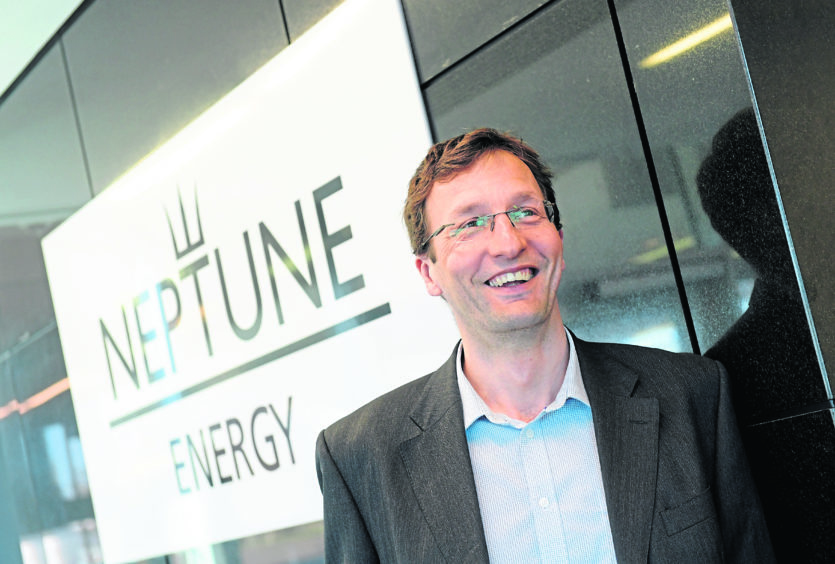
Short-term pain, long-term gain.
No matter who you are or where you’re sitting as you read this, it’s a concept you’ll be familiar with, particularly in the current climate.
It describes the situation most of us find ourselves in today; living in a lockdown and giving up freedom of movement while workers in the NHS and social care sector continue to do an incredible job of battling COVID-19, to preserve our health and our future.
It also describes steps the oil and gas industry is taking due to the lower commodity environment, curtailing spending plans and pushing back projects.
Our resiliency and our ability to recover are being tested to an enormous degree.
We talk about resiliency a lot at Neptune – the ability to bounce back when circumstances change unexpectedly – and we’ve very deliberately structured our business with resiliency built in, providing the flexibility needed to adapt when times are tough or unforeseen challenges come up.
A resilient business isn’t impervious to external factors, but it is flexible and robust enough to be able to change direction, alter spending plans in the short term and still get to where it wants to go in the long-term. That’s always been Neptune’s mantra, and it’s intended to enables us to flex when market headwinds change.
Consider this; at the start of the year, the oil price was around $70 per bbl and look where things are today. In the absence of a sixth sense to predict what the future actually holds, a business that protects resiliency and plans for multiple pricing scenarios is better-placed to adapt and course-correct.
Like our politicians, responsible companies are making difficult decisions to protect the health, safety and wellbeing of their people – always the number one priority – and respond to the tumbling oil price, very similar to the gas price drop we observed a year ago.
Neptune’s responded too. We moved quickly and decisively to protect the health of our people, preserve our resilience, improve our liquidity and manage our cashflow. Like everyone else, we’ll face challenges and will have decisions to make. The difference is, our portfolio of assets and projects allow us to also keep a long term vision while protecting the short term. As we announced last month in our Full Year results for 2019, we’re deferring about 25% of our capital investment this year. That’s a postponement of the planned spending, not a reduction, and we remain absolutely committed to our portfolio of projects. We haven’t cancelled our plans. We’re working closely with our supply chain partners to ensure we’re aligned on a “joint future” through the challenging near term, with our sights set on the longer term.
Getting that balance right is crucial and it’s why making investment decisions is such a delicate matter.
There’s an inherent risk of reducing the ability to recover tomorrow by cancelling and cutting everything today. Yes, difficult decisions will have to be made and protecting their position in 2020 is essential for all businesses at this point in time, but where possible it is important we work with our supply chain to support the long-term investment decisions .
And the unwavering commitment to safety doesn’t change, no matter how spending plans are altered, and the focus on safety critical maintenance tomorrow will be no less robust than it was yesterday.
We’re afforded a certain amount of flexibility because of the very efficient nature and young age of our assets. Our opex is around $10 per boe, making us one of the lowest cost operators in the North Sea today. Yet we’re working very hard to be as prudent as possible in our 2020 spending and activity, while looking to maintain all the optionality of our project pipeline by deferring some of the expenditure.
An important part of creating long-term value is also recognising how expectations of E&P companies are continuing to evolve. Neptune has worked hard on being “fit for the future” and we underlined this with the publication of our Environment, Social and Governance strategy this week.
We already have among the lowest carbon and methane intensities in the sector and we’re targeting carbon intensity of 6kg CO2/boe by 2030 – a 60% reduction from forecasted levels if no action was taken – and net zero methane emissions by 2030.
To achieve this, we’re building on our experience of capturing and storing CO2 gained through projects in the Netherlands and Norway, and progress with the PosHYdon project to generate offshore hydrogen via our operated Q13a platform in the Dutch North Sea. We will further reduce flaring and venting, and replace operational equipment with new and more efficient technologies.
It’s also about how we act responsibly within the communities in which we operate and how we treat our employees, partners, customers and suppliers. Last year we supported an estimated $2.8 billion gross value added (GVA) contributions to the gross domestic product of the European countries where we operate – Germany, the Netherlands, Norway and the UK – and 11,500 jobs. That included $438 million in GVA contributions to UK GDP, and for every Neptune employee in the UK, around 16 jobs are supported elsewhere in the domestic economy, mainly due to our spend on capital goods and services.
The oil and gas industry can be proud of the hugely important role it has to supply sustainable, lower-cost energy to the world when it needs it most.
All businesses want to survive and grow, and no one wants to be caught out by making kneejerk cuts to reduce all spending, then find themselves unable to recover when the market improves. Responsiveness to the short term has to be balanced where possible with resilience for the long term. It requires a long-term, pragmatic view of what the future will look like.
Pete Jones, VP Operations Europe, Neptune Energy
Recommended for you
